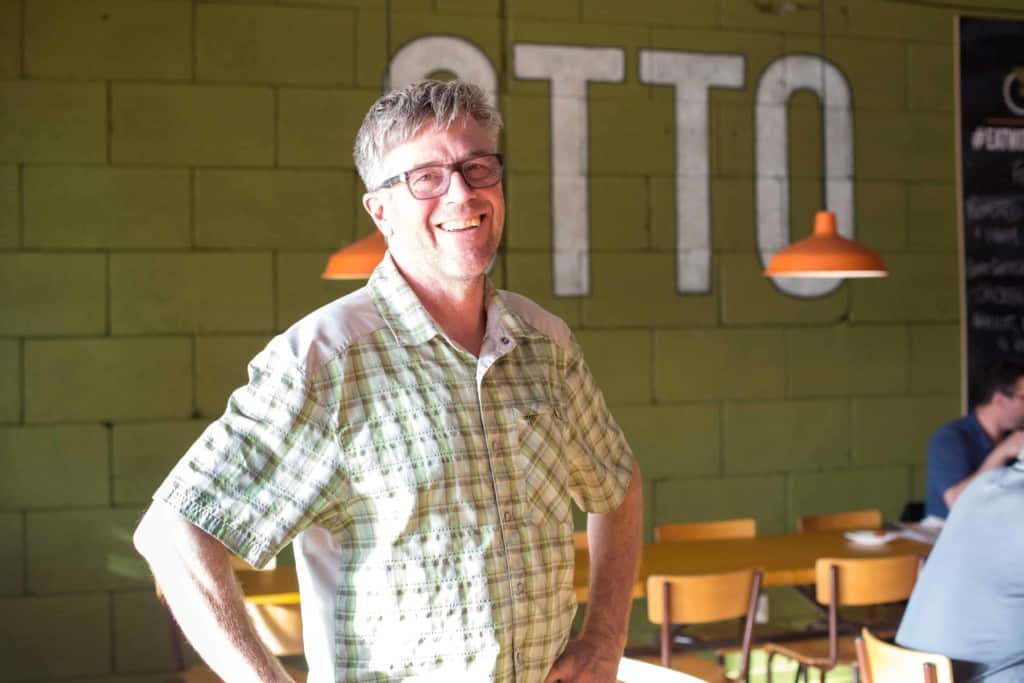Expenses pile up for local businesses
Navigating the economy brings many challenges
The economy has been a strain on everyone, employees and business owners alike. Last month, RCP featured the stories of people who live on a very limited income. This month illuminates the struggles business owners face.
Ryan Luxford is the owner of the 118 Avenue Wee Book Inn, a retail store selling, buying, and trading second-hand books. The store has a long history in the area; they’ve been on the Ave since 1995.
He says the biggest expenses are probably salaries and rent. He works with two part-time employees at his location.
“We used to own the building but sold it,” he explains. “We’re paying similar [rental] rates to downtown. I think the landlord has been nice to us for the first little bit.”
With experience comes wisdom in choosing locations.
“One of our secrets over the years has been to find the best retail locations. We actually own the Whyte Avenue property.” However, the trade off is paying the property taxes, which are particularly high.
Ed Donszelmann, owner of Otto Food and Drink, says his biggest expenses are food and labour.
“Labour’s huge. Food has gone up. The raw material has gone up as well, all the time. That’s a constant, it’s inflation,” Donszelmann says.
Donszelmann doesn’t have a problem with carbon tax. “It’s something that’s needed, so do it.”

The increase in minimum wage has affected some businesses more than others.
“Some restaurants have gone under. We’re surviving, we’re on the right path,” says Donszelmann, but he adds, “As your expenses go up, you can’t keep raising your prices.” At some point, people will simply not be able to pay.
While many people employed at restaurants in positions like servers make minimum wage, there is the benefit of tips.
Donszelmann employs 12 people at Otto Food and Drink, and they all tip share.“Tips are vital to this industry. We try to make it so everyone makes the same amount of money. Tipping gives all the staff a reasonable living wage.” He explains that people work at restaurants for different reasons. Some, he says, make a career of it. “For others, it’s a great means to an end.”
Chris Hayduk, owner of Cafe Blackbird in Crestwood, explains that every aspect of running a business is expensive and it all adds up.
Location is a big factor. “We’re in a small, desirable area,” he explains. Rent, therefore, is a significant expense. Add in the fact that every business has some sort of overhead costs.
“We’re a business built on quite small transactions,” he says. Customers typically come in for a cup of coffee or a bite to eat. “Cups, cream, sugar, cup sleeves—there’s not a lot left at the end of it. Keeping those margins tight might work if you’re doing a huge volume,” he says, citing franchises like Tim Hortons. Small businesses don’t usually have that volume of people coming through the doors.
And while something like carbon tax or increases in food or supplies may not affect a business directly, business owners still end up paying.
“Every time the cost of something goes up, it goes up across the board.” For example, if suppliers who transport goods are faced with increased costs, they’ll pass some of those increases on to their clients.
“Everything comes to us somehow. Even local products have to be shipped. I’m the guy at the end of the supply line. I don’t want to reduce the quality of goods, so my option is to increase prices.”
Joachim Holtz, executive director of Alberta Avenue Business Association, says businesses face many expenses.
“It’s not just minimum wage, it could be other factors,” Holtz says, giving examples of cost of goods and rent. “But they’ve been resilient and have the guts to go on. People don’t have as much disposable income. Any bump in the economy will be good.”
Featured Image: Ed Donszelmann (middle), owner of Otto Food and Drink, with staff members. | Rebecca Lippiatt







